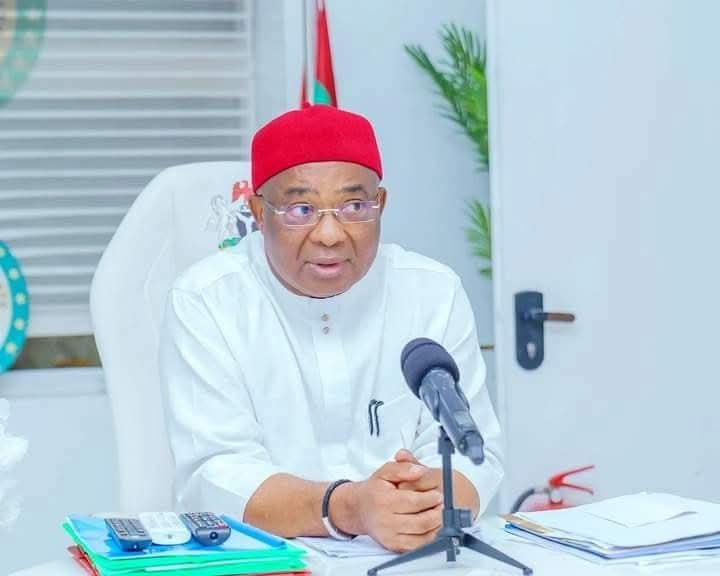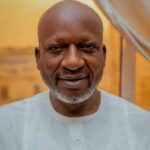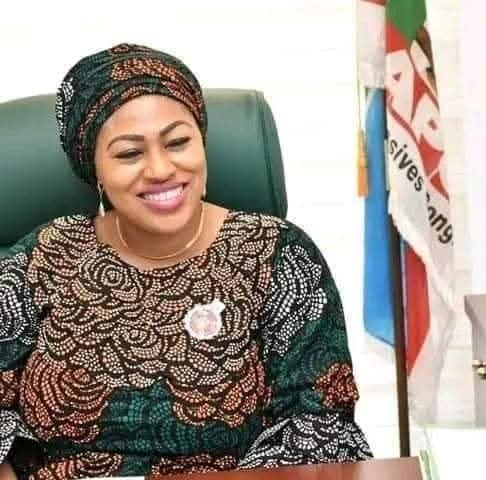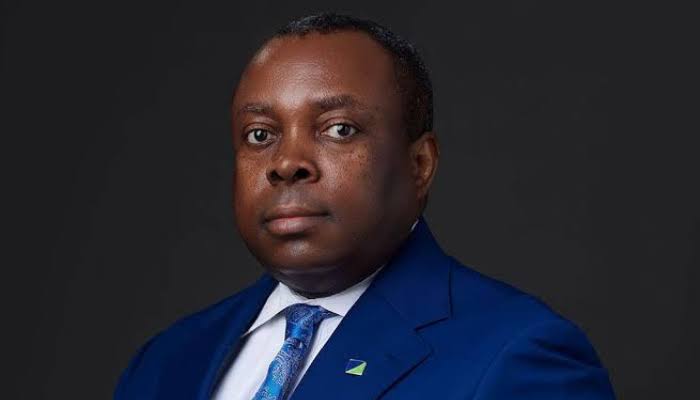By PROTUS UZORMA NATHAN
I write as a scholar who knows nothing but attempts to know so that those who claim to know will be humbled by learning from someone who knows nothing. Every nothing is something because a state of nothingness does not exist. Nature is nothing. and in it is everything. No wonder the Holy book warned humanity to be careful for nothing thus, “Be careful for nothing…” Philippians 4:6. In the Hindu Holy Book, Bhagavad Gita 2:47 Lord Krishna said, “Do not be anxious , but in everything by prayer and supplication make your wants known to God.” In Buddhism a similar teaching is found in the Anapanasati Sutta, where the Buddha says, “Do not be anxious about anything, but cultivate mildness and wisdom.” In the Gathas, Zarathustra (Zoroaster) Yasna 31-2, Quran33:3, Analects 6:22, Laozi’s Tao Te Ching Chapter 2, Majjhima Nikaya 118 to mention a few, these chapters are of the view of being careful for nothing directly and indirectly.
I’m saying this because Distinguished Senator Hope Uzodima’s administration has been making waves in Imo State, and one of the notable achievements is the resurgence of the Ahiajoku Lecture. This premier cultural and intellectual event is a significant milestone for the Igbo people, aiming to preserve cultural values while tackling contemporary challenges. The 2025 Ahiajoku Lecture, scheduled for November 27-28 in Owerri, Imo State, promises to be an enlightening experience. With the theme “The Future of the Igbo Economy Amidst the Challenges of Insecurity in the South East: A Call for Paradigm Shift”, the event is poised to address pressing economic issues facing the Igbo region.
Bishop Professor Godfrey Onah, the Catholic Bishop of Nsukka Diocese, will deliver the lecture, bringing his expertise in philosophy and public discourse to the table. The event is a two-day festival, featuring an opening colloquium and the main lecture, with various activities like cultural displays and exhibitions. The Ahiajoku Lecture is not just an event, but a platform for intellectual discourse and cultural preservation. Eminent personalities, including the Obi of Onitsha, Igwe Nnaemeka Achebe, will be in attendance, underscoring the significance of this event.
Governor Uzodinma’s administration has been working tirelessly to promote cultural heritage and economic development in Imo State. The revival of the Ahiajoku Lecture is a testament to his commitment to preserving Igbo culture and fostering intellectual growth. This achievement is part of a broader narrative of progress and development in Imo State. Governor Uzodinma’s administration has implemented various initiatives to boost the economy, improve infrastructure, and enhance the quality of life for citizens. The governor’s focus on education, healthcare, and agriculture has yielded positive results, with notable improvements in these sectors. His administration has also prioritized security, recognizing its importance in fostering economic growth and development. As Governor Uzodinma continues to lead Imo State, his vision for a prosperous and peaceful Igbo community remains unwavering. The Ahiajoku Lecture is a significant step towards realizing this vision, providing a platform for stakeholders to engage and shape the future of the Igbo economy.
The event is a reflection of Governor Uzodinma’s dedication to promoting Igbo culture and heritage. By reviving this important event, he is ensuring that the Igbo people remain connected to their roots while navigating contemporary challenges. The success of the Ahiajoku Lecture is a testament to the governor’s ability to bring people together and foster meaningful dialogue. As Imo State continues to grow and develop, it is clear that Governor Uzodinma’s administration is on the right path. With the Ahiajoku Lecture, Governor Uzodinma is setting the stage for a brighter future for the Igbo people. The event promises to be a catalyst for change, inspiring innovative solutions to the economic challenges facing the region. Governor Uzodinma’s achievement is a reminder that cultural preservation and economic development go hand-in-hand. By investing in cultural events like the Ahiajoku Lecture, he is promoting a sense of identity and community, while driving progress and growth.
As the Ahiajoku Lecture approaches, anticipation is building, and expectations are high. The event is poised to be a landmark moment in Imo State’s history, and Governor Uzodinma’s administration deserves praise for making it happen.
The governor’s commitment to preserving Igbo culture and promoting economic development is evident in his efforts to revive the Ahiajoku Lecture. This initiative will have a lasting impact on the Igbo people, inspiring future generations to cherish their heritage and strive for excellence.
The Ahiajoku Lecture stands as a beacon of cultural pride and intellectual rigor, illuminating the path towards preserving and promoting Igbo heritage. Instituted in 1979 by Governor Sam Mbakwe, this annual festival has become a cornerstone of Igbo civilization, celebrating the rich tapestry of Igbo culture, worldview, and traditions. By fostering unity, cultural pride, and socio-economic development, the Ahiajoku Lecture has transcended its initial purpose to become a unifying force for the Igbo people, both at home and in the diaspora. This remarkable achievement is a witness to the enduring legacy of Igbo cultural ideals, which have been kept alive through the years despite periods of neglect and adversity.
The lecture series has consistently provided a platform for intellectual discourse, critical reflection, and cultural exchange, attracting prominent scholars, philosophers, and leaders from across the globe. By addressing contemporary issues affecting the Igbo nation, the Ahiajoku Lecture has become an indispensable tool for promoting accountability, challenging materialism, and strengthening Igbo identity.
One of the most significant contributions of the Ahiajoku Lecture is its role in preserving Igbo language, culture, and values. In an era where globalization threatens to erase cultural distinctiveness, the Ahiajoku Lecture has emerged as a bulwark, safeguarding the Igbo heritage and ensuring its transmission to future generations. The festival’s broad themes, which encompass Igbo culture, worldview, and contemporary issues, have made it a unique platform for exploring the particularities of Igbo identity. From pre-colonial Igbo politics to modern-day socio-political challenges, the Ahiajoku Lecture has tackled pressing issues, offering insights and solutions that have helped shape the Igbo nation. The revival of the Ahiajoku Lecture under Governor Hope Uzodimma’s administration marked a new chapter in the festival’s history. As part of efforts to reposition Imo State’s cultural and tourism sector, the revival underscored the importance of cultural heritage in driving socio-economic development.
Beyond its cultural significance, the Ahiajoku Lecture has become a symbol of Igbo pride, attracting participation from leaders and people from the seven Igbo speaking states of Nigeria and the diaspora. This pan-Igbo nature of the festival has fostered a sense of unity and shared purpose, underscoring the shared values and heritage that bind the Igbo people together. As a platform for critical discourse and cultural reflection, the Ahiajoku Lecture has provided a space for Igbo scholars, philosophers, and leaders to engage with pressing issues affecting the nation. Through preliminary events like colloquiums and cultural nights, the festival has created opportunities for intellectual exchange, artistic expression, and cultural innovation.
In recent years, the Ahiajoku Lecture has focused on contemporary challenges facing the Igbo nation, including security and economic development. These themes have sparked critical discussions and debates, highlighting the need for innovative solutions to address the pressing issues affecting the Igbo people.
The Ahiajoku Lecture has become an integral part of Igbo cultural heritage, attracting visitors and participants from across the globe. As a symbol of Igbo identity and cultural pride, the festival has put Imo State and Nigeria on the global cultural map, showcasing the rich diversity and resilience of Igbo culture.
The Lecture is more than just a cultural festival – it is a celebration of Igbo civilization, a testament to the enduring legacy of Igbo cultural ideals, and a beacon of hope for the future of the Igbo nation. As the world continues to evolve, the Ahiajoku Lecture remains a steadfast symbol of Igbo identity, cultural pride, and unity.
The significance of the Ahiajoku Lecture cannot be overstated. It has become an integral part of Igbo cultural fabric, fostering unity, pride, and development among the Igbo people. As a platform for intellectual discourse and cultural exchange, the Ahiajoku Lecture has provided a space for critical reflection, innovation, and progress. Through its various themes and activities, the Ahiajoku Lecture has addressed pressing issues affecting the Igbo nation, offering insights and solutions that have helped shape the course of Igbo history.
As a symbol of Igbo cultural ideals, the festival has promoted accountability, challenged materialism, and strengthened Igbo identity.
The legacy of the Ahiajoku Lecture continues to inspire and motivate, providing a platform for exploring the complexities of Igbo identity and culture. As the Igbo nation looks to the future, the Ahiajoku Lecture remains a steadfast symbol of Igbo pride, unity, and cultural heritage.






